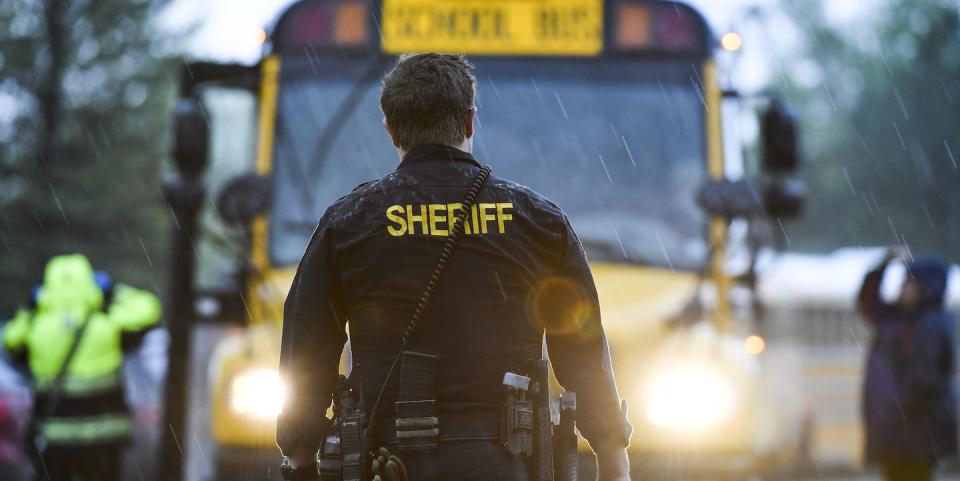Hey, Florida: This Isn't the Kind of 'Police Reform' We Were Talking About

Having spent the weekend taking a media tutorial in ongoing threats to our freedoms—you know, like having to wear a piece of cloth on your face, or needing to get a life-saving injection, or people failing to respect the inalienable right to be a jackass on television but remain undisturbed in a bait shop—I almost missed this major breakthrough in law enforcement. From the Tampa Bay Times:
But the four-page letter from the Pasco Sheriff’s Office goes on to tell recipients they will be facing enhanced police scrutiny under the agency’s controversial intelligence program. “You may wonder why you were enrolled in this program,” the letter continues. “You were selected as a result of an evaluation of your recent criminal behavior using an unbiased, evidence-based risk assessment designed to identify prolific offenders in our community. As a result of this designation, we will go to great efforts to encourage change in your life through enhanced support and increased accountability.”
And the lawyers working on behalf of the estate of Philip K. Dick go on high alert.
Is it even necessary to point out how very many ways this could go so badly wrong? Let’s begin with the fact that we’d have to take this “unbiased, evidence-based” claptrap seriously, which I don’t. What do you suppose those “great efforts to encourage change in your life” might be? I don’t even want to guess. I do know that this isn’t what people meant a few months ago when they were talking about “police reform.” And it seems that Pasco County would be a marvellous environment for the many ways in which this could go badly wrong.
Last year, a Tampa Bay Times investigation revealed that the Sheriff’s Office creates lists of people it considers likely to break the law based on criminal histories, social networks and other unspecified intelligence. The agency sends deputies to their homes repeatedly, often without a search warrant or probable cause for an arrest. Targets and their relatives, including four who are now suing the Sheriff’s Office in federal court, described the tactics as harassment and a violation of their constitutional rights. National policing experts drew comparisons to child abuse and surveillance that could be expected under an authoritarian regime.
Of course, if you’re going to set up a modern surveillance state, you have to start them young.
The Times also found that the agency has a separate program that uses schoolchildren’s grades, attendance records and abuse histories to label them potential future criminals. Earlier this year, Sheriff Chris Nocco and the Pasco County school district announced they would scale back some features of the school-data program. But the letter signals a broadening of the core program.
Yes, it does. When police power gets a taste of something like this, the addiction to it develops almost instantaneously. And the craving does nothing but grow more intense.
The Times found being named a Sheriff’s Office target could have serious consequences. Deputies showed up at homes at all hours of the day and night, writing tickets for violations like overgrown grass and making arrests for any reason they could find. By 2020, some 1,000 people had been ensnared. About 100 were 18 years old or younger.
When people say we should teach civics to our young people again, this is not what they have in mind.
You Might Also Like

 Yahoo Finance
Yahoo Finance 